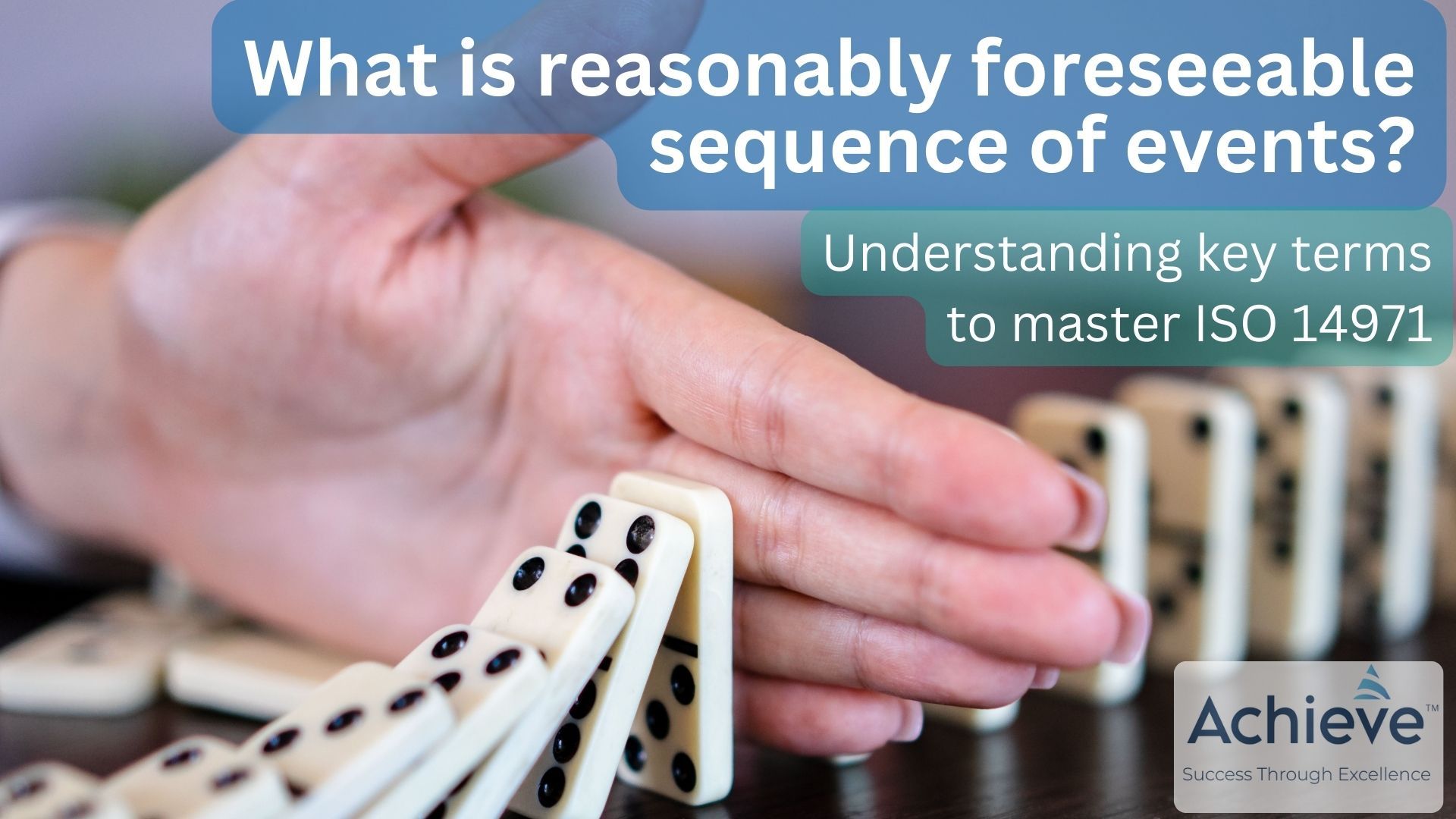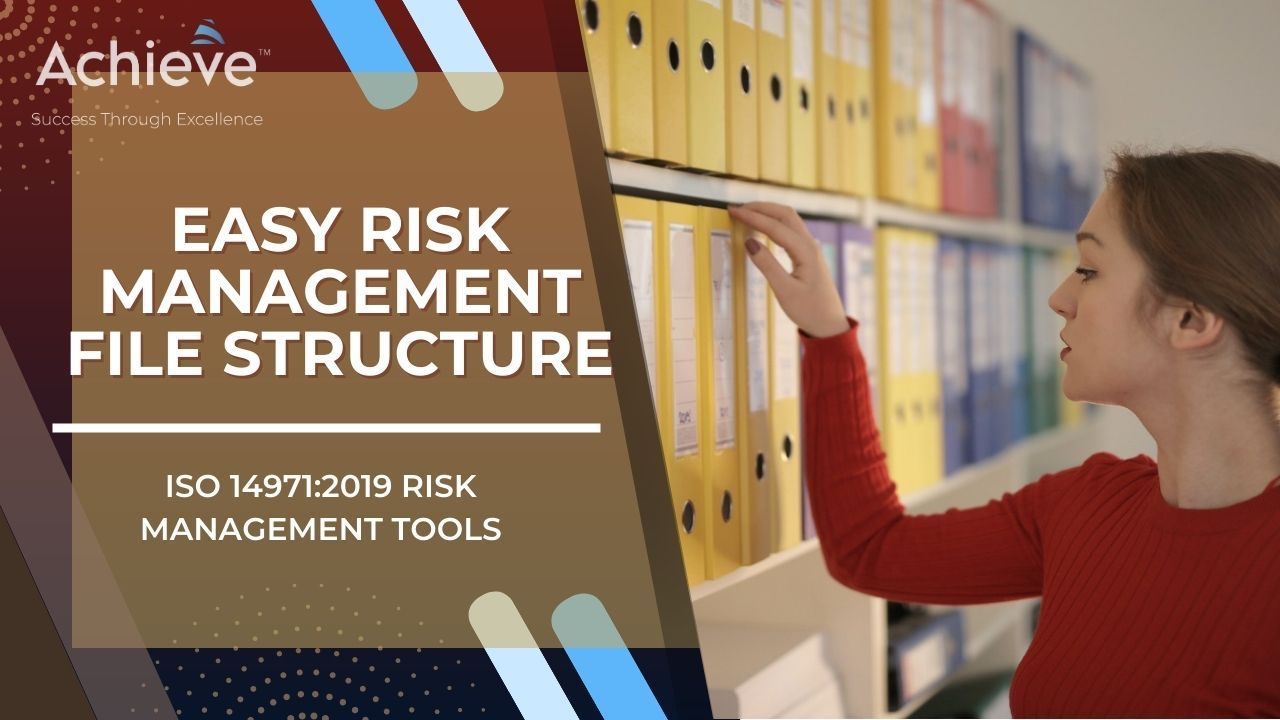The ACHIEVE Blog
Insights on risk management topics and tips and techniques for implementation.
A clear understanding of reasonably foreseeable sequence or combinations of events leading to hazardous situations is critical for identifying risks associated with the use of a medical device. In pra...
If you are looking to get certified in medical device risk management according to ISO 14971, you are probably finding it hard to select the right ISO 14971 certification course that can help you buil...
There is a lot of confusion in the medical device industry about the term hazardous situation. It is a common practice in the industry to equate failure modes to hazardous situations, but that is gene...
ISO 14971 requires manufacturers to establish and maintain a risk management file for their medical devices. A risk management file (RMF) is an essential part of the risk management system, but it pro...
At first glance, the term hazard appears quite intuitive to understand. According to the dictionary, it is the source of danger. But it is not so easy to precisely define it when doing risk analysis f...
Analysis of post-market data is critical to ensuring continued safety and effectiveness of our medical devices. It is also a requirement of ISO 14971:2019. A common practice in the medical device indu...
ISO 14971 requires the top management to evaluate the suitability and continuing effectiveness of the risk management process for their medical device. But this evaluation is generally done rather imp...
Although not a mandatory requirement of ISO 14971, it is a common practice in the medical device industry to use the P1, P2 approach for estimating the probability of harm (POH). In many cases, there ...
In this episode, we focus on some of the practical challenges in implementing a severity scale to analyze the risk of harm associated with medical devices. Industry practice is to use a 1-5 scale wher...
Estimating risk of harm for your medical device is a requirement of ISO 14971:2019. However several practical challenges make it difficult to accurately estimate the risk of harm. This is partly becau...
This week, we kicked off our Weekly Live Discussion Series! We talked about Hazard Analysis and why it becomes challenging if you try to combine it within a FMEA (Failure Mode Effects Analysis). Check...
If you are using an FMEA to define sequence of events and hazardous situations relevant for your medical device, you are likely having a difficult time. Here is an easier, more direct way to meet ISO ...
LET'S TALK RISK! NEWSLETTER
Say yes to receiving a practical risk management tip each week!
You're safe with me. I'll never spam you or sell your contact info.











